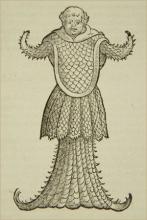Given the increasing visibility of Animal Studies in Anglophone contexts, the time seems right for interrogating the parameters of what Animal Studies might look like in other linguistic or national contexts. This course proposes a critical overview of some of the abundant animal-focused scholarship being done in French (mostly in philosophy and literary criticism, although we will make ourselves aware of work by ethologists, biologists, etc.), much of which has not been translated. Certainly, the “animal moment” seems to have arrived in France: witness the recent “pétition pour un nouveau statut juridique de l’animal” signed by 24 high-profile French philosophers, scientists, and historians; public debates about meat-eating and national identity;, protests against the corrida; as well as academic laboratoires dedicated to la question animale in multiple disciplinary contexts. This flourishing of academic and activist activity gives the lie to any notion we might have (influenced by Luc Ferry, for example, or even – as Le Nouvel Observateur opined – going back to Descartes’s beast-machine) that the French have a merely instrumentalist attitude toward animals. However, as we explore “French Animal Studies”, we will also examine our own relationship to the very idea that there is a specifically French Animal Studies that coheres around something other than language. Hopefully, our readings will challenge as much as they will bear out this assumption.
The class will be designed to fulfill some (early modern) period requirements for those who require it, so two or three weeks will be dedicated to Montaigne, Descartes, and La Fontaine, as well as recent critical work on these authors. In general, students will be encouraged to formulate a final project that corresponds with their own areas of interest: intersections between Animal Studies and gender/sexuality; animality and race; posthumanism; etc. Articulations between French and English animal studies will be encouraged, indeed, necessary.
Readings will include selections from Montaigne, Descartes, La Fontaine, Jacques Derrida, Jocelyn Porcher, Vinciane Despret, Florence Burgat, Dominique Lestel, Elisabeth De Fontenay. Since some texts have not been translated, a reading knowledge of French is required, athough I will try to provide translations where possible. Discussions will be in English. Students in French Studies are encouraged to write their final papers in French and read texts in French even if there is a translation available.
